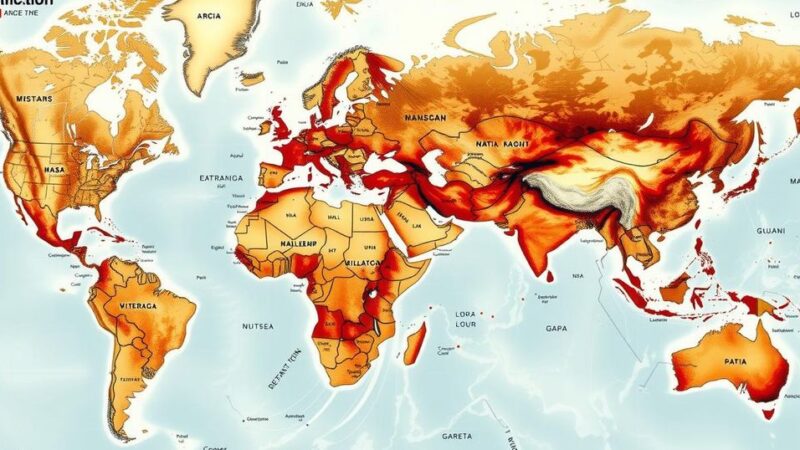Uzbekistan’s Minister Shavkat Khamraev affirmed Afghanistan’s right to Amu River water via the Qosh Tepa Canal, promoting peaceful relations. Concurrently, the UN criticized the ban on girls’ education in Afghanistan, stressing its harmful effects. Russian officials called for enhanced counter-terrorism efforts as Afghanistan faces security challenges, and the IEA seeks recognition through diplomatic channels with the U.S.
Uzbekistan’s Minister of Water Resources, Shavkat Khamraev, emphasized that Afghanistan has a rightful claim to the water of the Amu River, particularly through the Qosh Tepa Canal project. He reassured citizens that there is no conflict regarding Afghanistan’s water rights, saying, “The Afghans are our relatives. They also have the right to take water from the Amu River.” The minister stressed the importance of maintaining peaceful relations without resorting to conflict.
The Amu River serves as a crucial water source for several countries, including Tajikistan, Uzbekistan, and Turkmenistan. Afghanistan has historically been unable to utilize this resource but is currently seeking to establish its water share by completing the Qosh Tepa Canal, which spans over 280 kilometers. This canal, once operational, will irrigate 1.2 million hectares across Balkh, Jowzjan, and Faryab provinces, potentially leading to self-sufficiency in wheat production for Afghanistan.
In related news, the UN expressed profound disappointment over the sustained ban preventing Afghan girls from receiving secondary education, affecting 2.2 million girls, including 400,000 this year alone. The UNAMA’s representative, Roza Otunbayeva, highlighted this educational exclusion as detrimental to Afghanistan’s future and a significant barrier to international support, saying, “This ban reduces Afghanistan’s prospects of recovery, and must be reversed.”
Furthermore, Russia’s Ambassador to Pakistan, Albert P. Khorev, remarked that Afghanistan’s counter-terrorism efforts have been inadequate due to economic hardships and security conditions. He identified ISIS as a major threat and mentioned Russia’s collaborative initiatives with regional partners to combat terrorism. Khorev also dismissed claims regarding Pakistani arms supplies to Ukraine as unfounded.
Lastly, the Islamic Emirate of Afghanistan (IEA) has requested both the handover of the Afghan embassy in Washington and the reopening of the U.S. embassy in Kabul, as expressed by spokesperson Zabihullah Mujahid. This request symbolizes the IEA’s intent for international recognition and better bilateral relations, especially following a recent visit by a U.S. delegation.
In summary, Uzbekistan acknowledges Afghanistan’s rightful access to the Amu River’s water, underlining the need for peaceful relations. Concurrently, the UN has condemned the ongoing ban on girls’ education, asserting negative implications for Afghanistan’s future. Additionally, Russia emphasizes regional cooperation against terrorism while the IEA seeks international recognition through diplomatic requests to the U.S. These developments indicate the complexities facing Afghanistan at both domestic and international levels.
Original Source: www.ariananews.af






